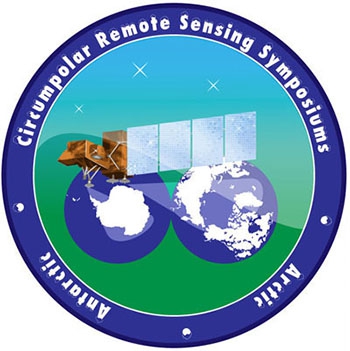Speaker: Donald J. Wuebbles, Department of Atmospheric Sciences, University of Illinois
Climate Seminar 8 of 8:
Abstract:
New observations and new research have increased our understanding of past, current, and future climate change. The Fourth National Climate Assessment confirms prior assessments in concluding that the climate on our planet, including the United States, is changing, and changing rapidly. Observational evidence for a changing climate abounds, from the top of the atmosphere to the depths of the oceans. Documented changes include surface, atmospheric, and oceanic temperatures; melting glaciers; disappearing snow cover; shrinking sea ice; and rising sea level. Many lines of evidence demonstrate that human activities have been the dominant cause of the observed warming since the mid-20th century. Changes in the characteristics of extreme events are particularly important for human safety, infrastructure, agriculture, water quality and quantity, and natural ecosystems. Some extremes have already become more frequent, intense, or of longer duration, and many extremes are expected to continue to increase or worsen, presenting substantial challenges. Heatwaves have become more frequent in the United States since the 1960s, while extreme cold temperatures and cold waves have become less frequent. Heavy rainfall is increasing in intensity and frequency across the United States and globally. These and other trends in severe weather are expected to continue. The Earth's climate is projected to continue to change over this century and beyond. As a result, global average sea levels are expected to continue to rise. This presentation provides an overview of the findings from the new assessment, with a special focus on severe weather.
About The Speaker:
Donald J. Wuebbles is the Harry E. Preble Professor of Atmospheric Science at the University of Illinois. He is also a Presidential Fellow at the University of Illinois, with the aim of helping the university system develop new initiatives in urban sustainability. From 2015 to early 2017, Dr. Wuebbles was Assistant Director with the Office of Science and Technology Policy at the Executive Office of the President in Washington DC. He was Head of the Department of Atmospheric Sciences at the University of Illinois for many years, and led the development of the School of Earth, Society, and Environment, and was its first director. Dr. Wuebbles is an expert in atmospheric physics and chemistry, with over 500 scientific publications related to the Earth's climate, air quality, and the stratospheric ozone layer. He has co-authored a number of international and national scientific assessments, including several international climate assessments led by the Intergovernmental Panel on Climate Change (IPCC), for which IPCC was awarded the 2007 Nobel Peace Prize. He was a leader in the 2013 IPCC international assessment and the 2014 Third U.S. National Climate Assessment. More recently, he co-led the Climate Science Special Report, the 475-page first volume of the Fourth U.S. National Climate Assessment published in November 2017 that assesses the science of climate change. Dr. Wuebbles has also led special assessments of the impacts of climate change on human society and ecosystems for the U.S. Midwest, the Northeast, and a special assessment for the city of Chicago. Dr. Wuebbles has received several major awards, including the Cleveland Abbe Award from the American Meteorological Society, the Stratospheric Ozone Protection Award from the U.S. Environmental Protection Agency, and is a Fellow of three major professional science societies, the American Association for the Advancement of Science, the American Geophysical Union, and the American Meteorological Society.
Sponsors: The U.S. Global Change Research Program and NOAA's National Ocean Service Science Seminar; co-hosts are Katie Reeves (kreeves [at] usgcrp.gov) and Tracy.Gill [at] noaa.gov
Webinar Access: NOTE: WEBINAR SOFTWARE HAS CHANGED.
We will be using the Adobe Connect platform for this webinar.
To join a session, please go to this site at the scheduled date and time and 'enter as guest':
https://noaabroadcast.adobeconnect.com/nosscienceseminars/
Users should use either IE or Edge on Windows or Safari if using a Mac.

